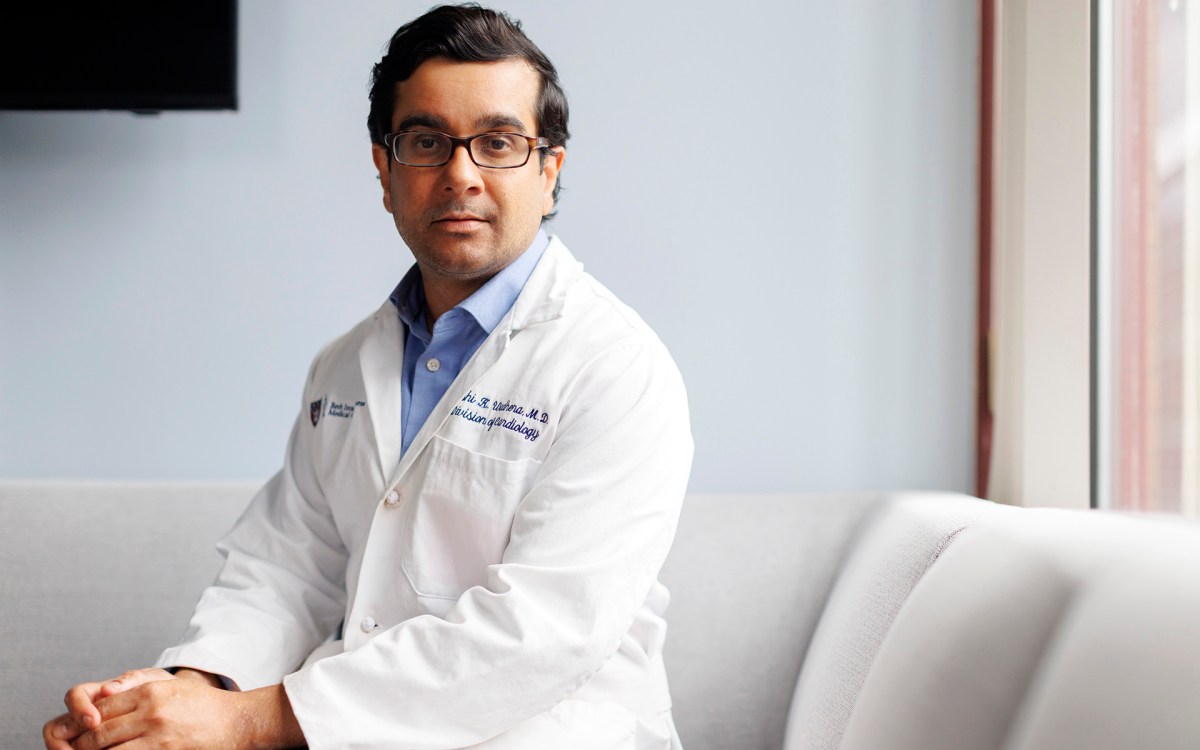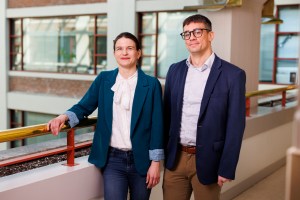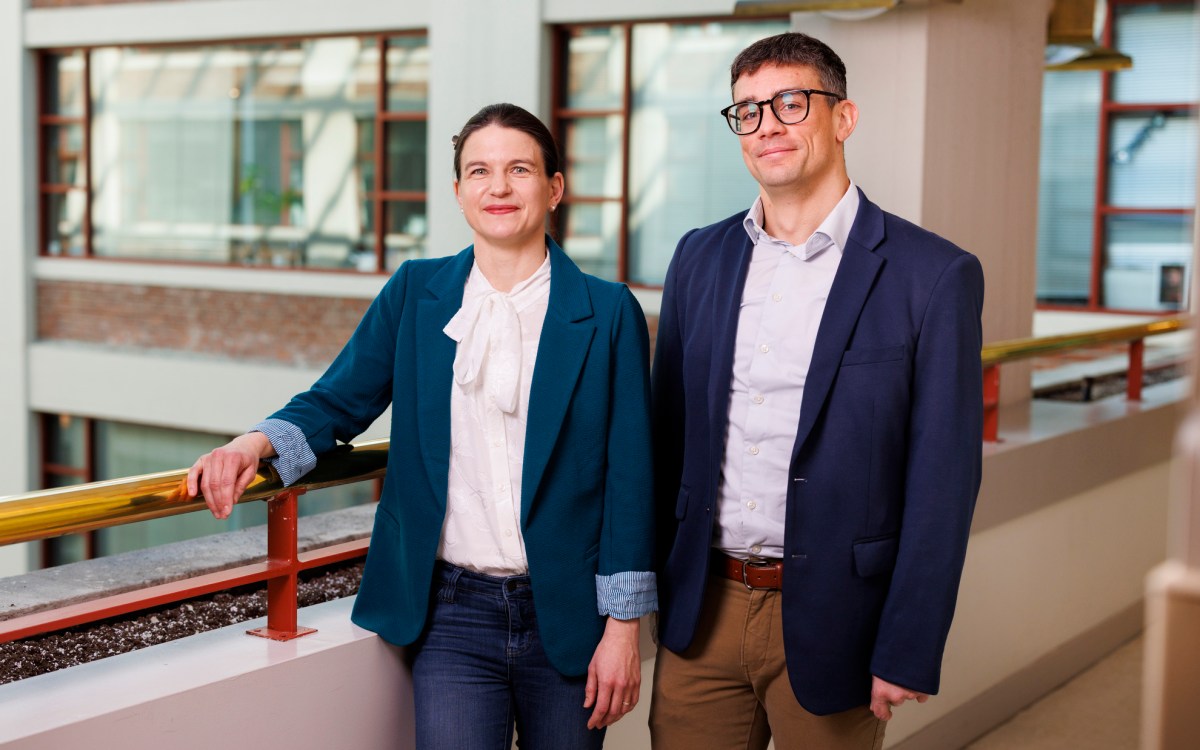Is dining with others a sign of happiness?
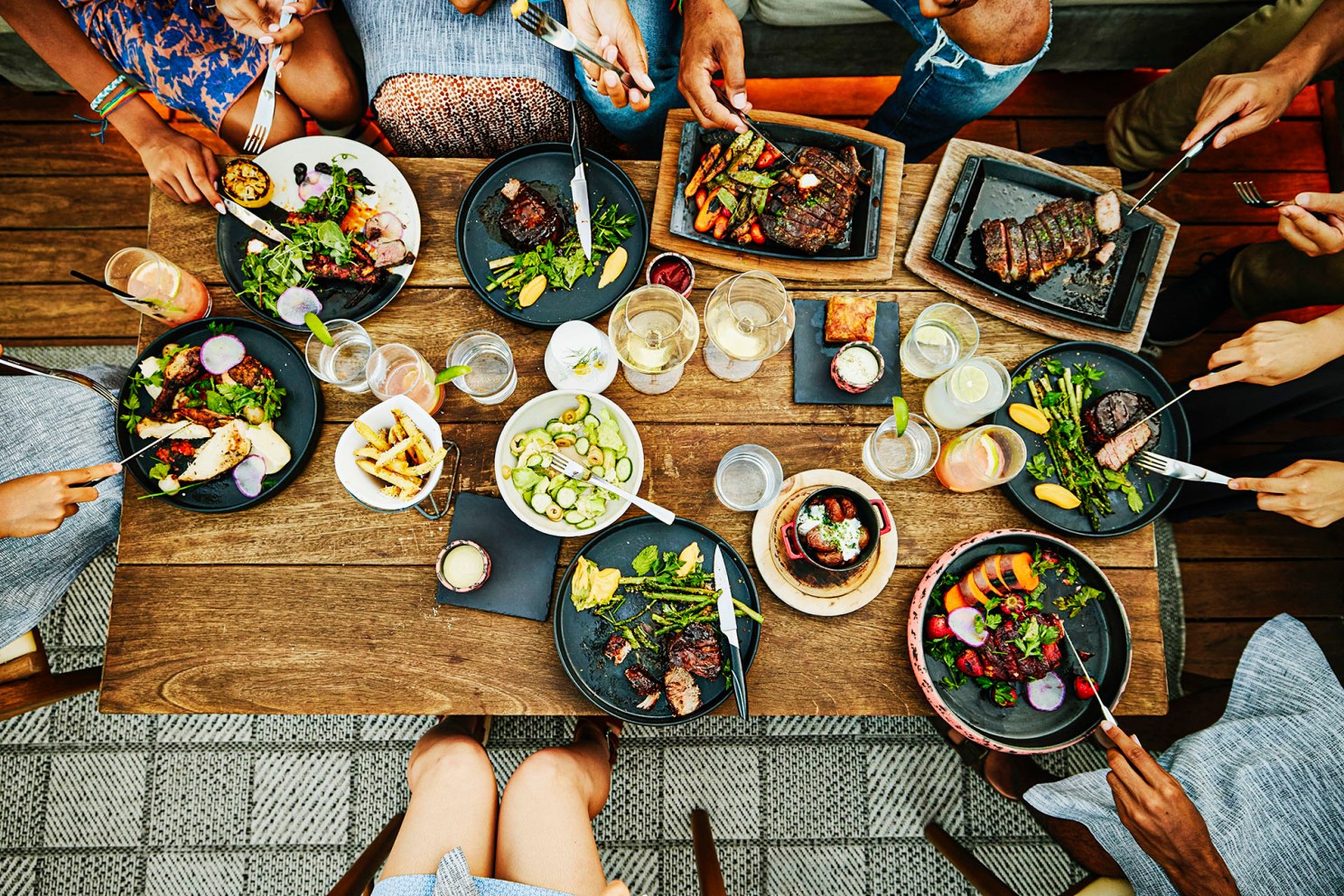
Getty Images
Shared meals may be a more reliable indicator of well-being than income, Kennedy School researcher says
People who eat more meals with others tend to be more satisfied with their lives and are more likely to express positive emotions, according to a study published in the annual World Happiness Report. According to the finding’s authors, sharing meals is as predictive of happiness as income or employment status — across ages, genders, countries, cultures, and religions.
It may be a problem, then, that the Bureau of Labor Statistics’ American Time Use Survey found that Americans are spending more and more time dining apart, numbers the authors cite in their study. “In 2023, roughly 1 in 4 Americans reported eating all of their meals alone the previous day,” the study said, “an average increase of 53 percent since 2003.” This trend holds across all age groups, with the most dramatic drop among young people.
“It’s just surprising to me that this increase would be so clear and so severe,” said Micah Kaats, a doctoral student in public policy at Harvard Kennedy School who co-wrote the report.
While the study shows a strong correlation between the number of shared meals and happiness, it does not state whether sharing meals causes happiness or whether happy people tend to share more meals. “In all likelihood, I would be willing to put money on both being true,” Kaats said, “but which of those factors is stronger is definitely a task for future research.”
Meal sharing and happiness in the U.S.
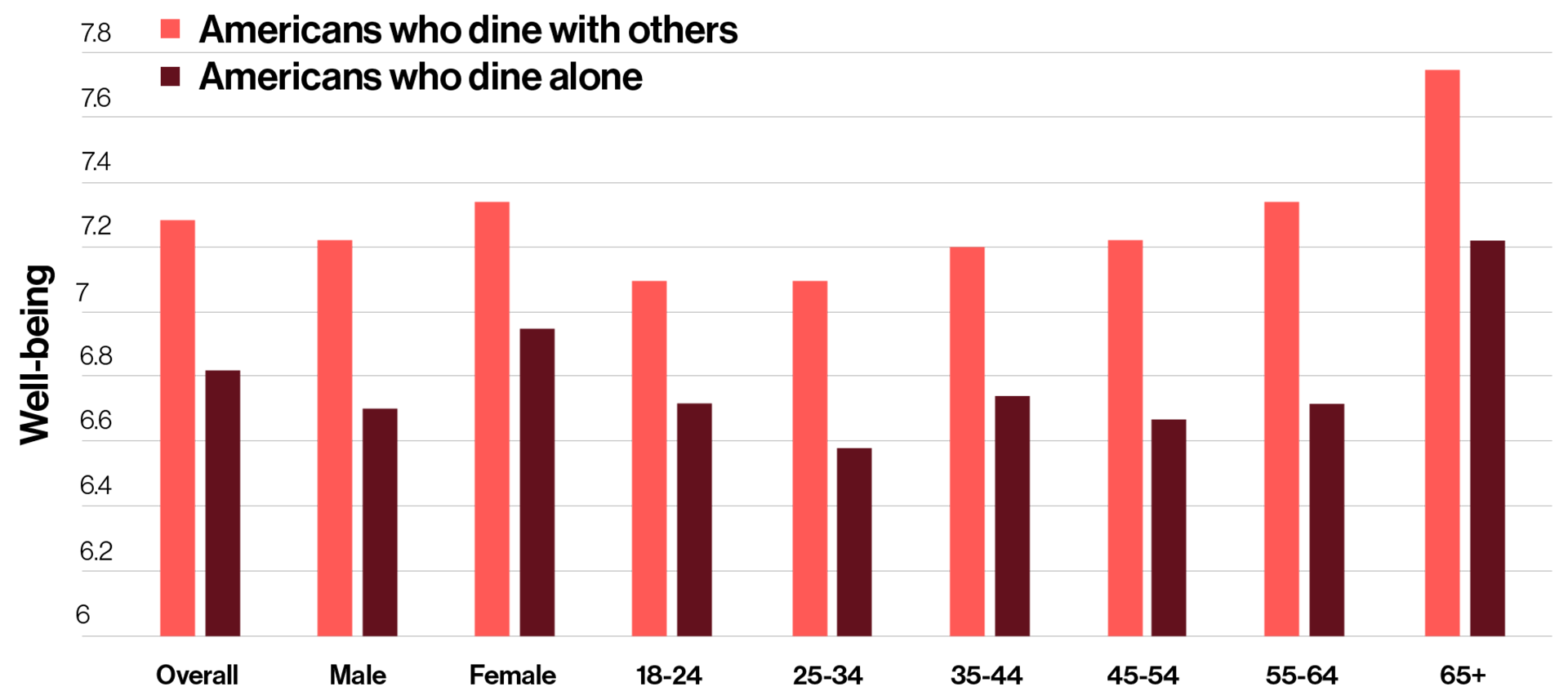
The correlation itself is an important development for the field, according to Kaats, in part because happiness is hard to measure. When researchers ask someone to rate themselves from one to 10 on a happiness scale, Kaats says, it’s hard to pinpoint what a one or 10 might mean for any given person on a single day.
Though these subjective measures can be valuable to social scientists and policymakers, researchers often use income, insurance rates, and other factors that have shown strong correlational links to well-being as proxies. But these factors themselves are often hard to measure. “A lot of people don’t want to report their income,” Kaats said. “Those who do want to report their income are a select group.” From there, it’s difficult to tell the accuracy of what’s being reported, the exact type of income one might report (Pretax? Household? Posttax?), and how incomes can be compared between countries and over time.
Compared to these often-used variables, the number of shared meals is relatively clear-cut: “Yesterday, did you eat lunch or dinner with someone you know?” Kaats hopes that the question will find a use among other objective indicators linked to social connection — such as density of civic organizations or the number of political groups per county — that are used to gauge amorphous concepts like happiness and social trust.
In future research, Kaats hopes to tease out whether people become happier when they share more meals. But regardless, Kaats believes that the correlation between shared meals and happiness is important on its own. “If I want to know about your well-being, it’s much more informative for me to know how many meals you ate with other people in the last week than how much money you make,” he said, “so whatever the causal dynamics are, that seems important and interesting and worth further study.”
As researchers and policymakers contend with worsening mental health and increasing social isolation, shared meals could be both an important indicator of well-being and a source of policy intervention.
“We can’t solve every problem at once,” Kaats said, “but if we can get people to share more meals with each other, and that would improve people’s well-being, it’s a good place to start.”
